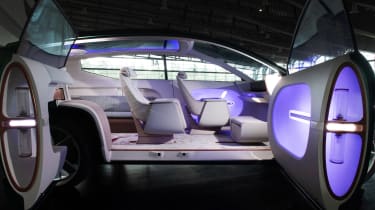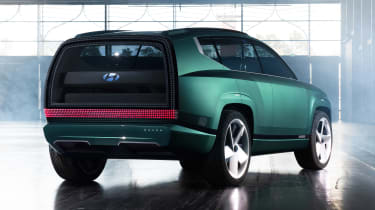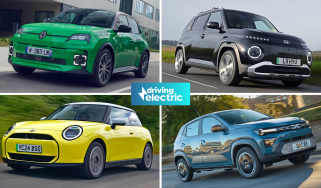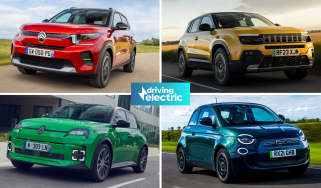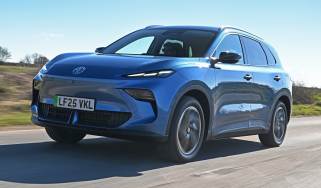Hyundai Ioniq 7 electric SUV set for 2023 production
Ioniq 7 flagship seven-seat electric SUV will go on sale in 2023, joining the recently unveiled Ioniq 6 saloon in Hyundai's line-up
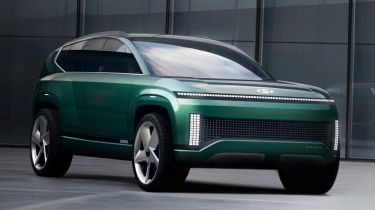
The Hyundai Ioniq 7 seven-seater SUV is set to go into production at some point in 2023, as the third member of the South Korean brand's fully electric family.
A first hint of what the Ioniq 7 could look like came in the shape of the SEVEN concept revealed at the 2021 Los Angeles Motor show. Hyundai described the SEVEN's design as an example of "form following function" and said it "dares to diverge from traditions of the internal-combustion engine era".
The concept featured wheels pushed out to the corners of the car, plus a 3.2-metre long wheelbase and a flat floor inside – all sitting on the same 'E-GMP' platform that underpins the Hyundai Ioniq 5 and Kia EV6.
Based on comments made by Hyundai design vice-president Simon Loasby at the Busan Motor Show in July 2022, it's likely that some of the boxier, MPV-like aspects of the SEVEN's design will be dropped in favour of a more SUV direction for the Ioniq 7 production car.
The SEVEN features the same 'parametric pixel' light design as the Ioniq 5, with a large array of the square LED lights spanning the width of concept, front and back. Recycled and renewable materials feature strongly inside the SEVEN, including mineral plaster, bamboo wood and bio resin.
However, many of the concept SUV’s more unusual features, such as the pillarless coach doors, the sofa-like rear seat, and the steering control stick are unlikely to end up in the production Ioniq 7. The highly customisable seating layout and OLED screen in the roof are will also probably be ditched.
The Ioniq 7 SUV will be third of Hyundai's new-generation electric cars, following on from the Ioniq 5 hatchback and the Ioniq 6 saloon, will rival the likes of the Polestar 2 and Tesla Model 3.
Hyundai said the SEVEN had a target range of more than 300 miles, but didn’t disclose an exact battery size. We expect the production Ioniq 7 could have a capacity of up to 100kWh in order to offer a similar range to other large electric SUVs, such as the BMW iX and Tesla Model X.
The SEVEN also featured ultra-rapid charging, allowing it to top up from 10-80% in about 20 minutes from a fast enough charging point. The Ioniq 7 is likely to use the same 800-volt electrical system as all cars on the Hyundai-Kia electric platform, meaning it'll be also capable of being topped up from a 350kW charging-point.
Given the Ioniq 7’s size, the seven-seat SUV could use the dual-motor, four-wheel-drive setup from the Ioniq 5, which currently produces up to 301bhp and 605Nm of torque. However, Kia has tuned the same setup to deliver up to 577bhp in the EV6 GT, so Hyundai has plenty of potential to work with to give the Ioniq 7 an appropriate level of performance in order to match potential rivals like Mercedes EQE SUV.
Recommended
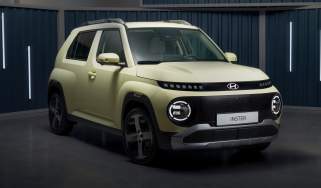
New Hyundai Inster is a tiny electric SUV with an even smaller predicted price
Most Popular

EV Deal of the Day: Dacia Spring is amazingly good value at £116 per month

